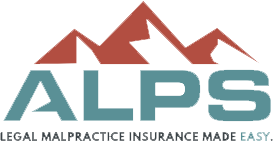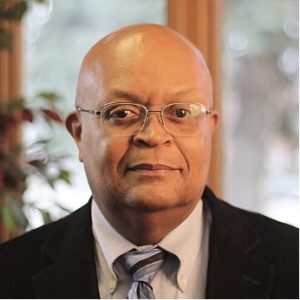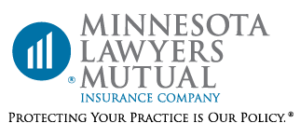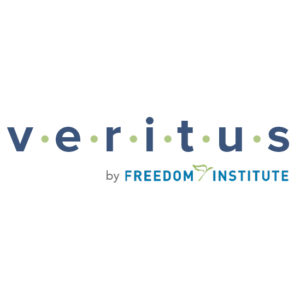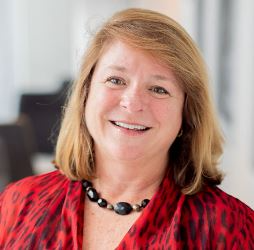Track 1A
We are excited to announce Dr. Martin Seligman as our keynote speaker who will kick off the conference on Wednesday, January 19! Register for any individual Track or the Full Conference Pass to attend this session.
Dr. Seligman, the founder of positive psychology, recently was ranked the #1 most influential psychologist of the past decade. In addition to his work as the director of the Penn Positive Psychology Center, he has authored more than 30 books (including best sellers in the United States and abroad), which have been translated into 50 languages. Among his better-known works are The Hope Circuit, Flourish, Authentic Happiness, and Learned Optimism. He is a leading authority in the fields of positive psychology, resilience, learned helplessness, depression, optimism, and pessimism.
Dr. Seligman’s current focus is on understanding the importance of agency in the history of human progress. He proposes that individuals, organizations, institutions, and even whole societies can become stuck and languish without the confidence, optimism, and imagination (the three elements of “agency”) needed to reimagine a new future and take steps to achieve it. Anne Brafford, IWIL’s vice president and Dr. Seligman’s former student, will join him in discussing how agency might help explain and resolve the current state of “stuckness” that prevents the legal profession as a whole and individual lawyers from flourishing. Questions we’ll consider include:
- What will the future of the profession look like if old ways of thinking drive out new generations of lawyers?
- How might agency help individual lawyers better identify and voice their values, preferences, and needs so that they can be their best selves in all domains of their lives?
You won’t want to miss this thought-provoking talk about reimagining our individual and collective future in the legal profession.
We are excited to announce Dr. Martin Seligman as our keynote speaker who will kick off the conference on Wednesday, January 19! Register for Track 1A or the Full Conference Pass to attend this session.
Studies finding that many lawyers aren’t fully thriving may not surprise you. But do studies exist to guide lawyers’ efforts at creating a flourishing professional life with less depression, anxiety, and burnout—while increasing well-being, positive emotions, job satisfaction, and job performance? The answer is a definitive yes. Susan Fowler, a sought-after speaker and bestselling author, explains how lawyers can do so by applying self-determination theory—a well-established theory of flourishing. Susan Fowler is the bestselling author of Why Motivating People Doesn’t Work… and What Does which has been translated into 14 languages and more recently, Master Your Motivation. She is co-author of two bestsellers with Ken Blanchard, including Self Leadership and The One Minute Manager and Leading at a Higher Level.
Thousands of studies, including in the legal profession, have found that self-determination theory predicts optimal functioning—the thoughts, behaviors, and emotions that help us be and feel our best. For example, a large-scale study of 6,000 practices lawyers, led by FSU law professor Larry Krieger, found that self-determination theory’s building blocks for thriving meaningfully impacted lawyers’ well-being—much more significantly, notably, than income. A subsequent study by Anne Brafford of more than 200 practicing lawyers found similar effects—with strong positive links to engagement and strong negative links with turnover intentions.
Susan has shared her message in all 50 states and over 40 countries, challenging traditional and outdated approaches for creating so-called work-life balance. She provides a blueprint for designing an authentic professional life where achievement, productivity, and well-being go hand-in-hand. You won’t want to miss her practical, science-based session proving that both you and your career can thrive.
Megan Lyons will teach her “WAKE UP + GO” framework for an 8-minute morning routine to help legal professionals use simple daily habits to recharge (and supercharge) their well-being and productivity. The routine—WAKEUP + GO—is an acronym that stands for:
*Water
*Affirmations
*Knowledge
*Exercise
*Unwind
*Positivity
*Gratitude
*One goal
Megan says, “I went from burned out and stressed out to empowered and at peace with my health … all by using a morning routine. In this session, I teach the foundational habits (which can be completed in eight minutes) needed to develop a healthy morning routine.
Learning Objectives
- Implement an 8-minute morning routine to prioritize themselves despite their busy-ness.
- Understand how powerful a few minutes of stillness an introspection is for their mental and physical health.
- Reduce pressure on themselves to implement something “perfect” and begin to take action today.
In this session, Jon Krop will teach daily habits to help legal professionals rejuvenate at night to feel and be their best each morning. He’ll provide strategies for unwinding, unplugging, creating boundaries between work and nonwork, and getting enough high-quality sleep.
Of the six dimensions of well-being identified by the National Task Force on Lawyer Well-Being in its seminal 2017 Well-Being Report, “Spiritual Well-Being” is probably the least understood and least discussed dimensions across law firms and law schools. In this program, participants will:
- Learn the meaning and importance of “spirituality” in the law (and how it differs from “religion”).
- Be guided through a series of experiential exercises to tap into a higher sense of purpose and meaning in your own work, and to more effectively align your career with your truest and most authentic self.
- Leave with a set of tools to take back to your own law firms or law schools to help others tap into spirituality and a deeper sense of purpose and authenticity in their legal careers and lives.
Track 1B
Vicarious trauma (VT) (also called secondary trauma) is a serious condition that can impact anyone who works with people who have experienced trauma. VT often results in impaired empathy and compassion, increased frustration, irritability, chronic stress, disengagement, and self-medicating behaviors. The negative effects of VT are insidious and cumulative and can lead to chronic anxiety, depression, numerous other physical and behavioral health problems, addiction, PTSD, burnout, and suicide. VT has a negative impact on the physical, emotional, mental, and spiritual well-being of legal service professionals. Those affected by VT include lawyers, paralegals, investigators, office support team members, judicial officers, and court staff, among others. Fortunately, many of the negative effects of VT can be prevented and mitigated. Once practitioners are made aware of VT and its symptoms, some simple but powerful tools and strategies can be used for successful self-care. Individuals, teams, and firms who encounter others’ trauma can be proactive in adopting regular practices to skillfully care for themselves and model the same for their team members.
Learning Objectives
- Understand what vicarious trauma is and who are at high risk of being impacted.
- Identify the symptoms of VT in themselves and others.
- Use multiple tools and techniques that they will experience in the workshop to prevent and mitigate the impact of VT, including a self-care plan that is developed as part of the workshop.
Do we know what joy is, and are we attorneys who are genuinely glad to be doing what we are doing? The principles we will explore in this workshop are evidence based principles on heart and brain health from medical research by several of the premier wellness advocates in practice today. The research we use is a fusion neuroscience, mindfulness, positive psychology, and psychoneuroimmunology with a big dose of therapeutic humor and peacebuilding—a fusion of ideas we lump together in a concept called “humor for peace.” This is an unconventional trust building model that allows lawyers to take a look at how they are applying their anger management and conflict management skills in their law practice and how to incorporate a little more humor, forgiveness, and compassion in their daily routines. This program is designed to enable attorneys to become more empathic and mindful in every aspect of their dealings with the courts, opposing counsel and their clients. It is a program designed to empower lawyers to more joyfully connect with one another with authenticity, integrity and humor, in order to build trust in the system they co-create through their interactions with colleagues and the public.
Our workshop workbook gives simple “maxims” which are easy to remember but can be very powerful tools because they are quick and memorable ways to recognize a role, a trap, or a situation that might compromise our values and endanger our wellbeing.
Are you ready to join us for some thought-provoking fun?
Learning Objectives
- Lawyers will be able to see the roles they may have willingly or unwittingly taken on in law practice and become empowered to make courageous choices to accept, reject, or delegate those roles.
- Take control of their law practice by embracing a vision of what their “legacy in law” or “laugh will and testament” can look like if they align their values to their vision. In the words of a lawyer we know: “To become the kind of lawyers our mothers say we are!”
- To build up resilience, pick up health and relationship tips to genuinely embrace a culture of cheer in the workplace.
- Learn how to not just be civil, but friendly, in order to develop empathy and camaraderie with one another.
More and more lawyers are embracing mindfulness practices, but knowledge of compassion practices is far less common. Research suggests, however, that compassion practices are as beneficial for attorneys who deal with stress and conflict every day. This session will provide training in compassion practices to help attorneys increase happiness, maintain a thriving law practice, and live up to ethical obligations.
Learning Objectives
- What compassion is and how it is embedded in legal work and attorney ethical obligations.
- How compassion can affect human wellbeing and mitigate the bodily stress response.
- Steps all attorneys can take to increase compassion and wellbeing in their lives and law practices.
This presentation combines findings and tips provided in texts such as Levine, S. The Best Lawyer You Can Be (2018), American Bar Association, and Brafford, A., Well-Being Toolkit for Lawyers and Legal Employers (2018), American Bar Association, with the Polyvagal Theory made famous by Dr. Stephen Porges and made accessible to mental health clinicians through texts by Deb Dana, LCSW. Christina Loftus is both a J.D. and an LMSW and is able to translate the clinical applications of Polyvagal Theory for the rational, logical mindset of attorneys. Directly citing material from The Best Lawyer That You Can Be, Christina will report on the 2015 study by Krieger and Sheldon that shows the top qualities that make attorneys happy:
- Authenticity
- Relatedness (a close second)
In addition, she will discuss how befriending our nervous system can help attorneys reach a happier state, leading to more resilience in the face of chronic stressors and preventing burnout.
Learning Objectives
- Promote a higher sense of calm through practical exercises and tips.
- Understand that by developing “vagal tone,” our ability to cope with external circumstances (stress) improves.
- Relate to others with a heighted ability to connect, as opposed to automatically react.
Track 2
Some law firm leaders are noting a greater reluctance and tempered enthusiasm by women and attorneys of color as we return to hybrid and step back into the office. At some point in their careers, people feel like they don’t belong. This challenge can be acute for those who feel like they are representing their group (e.g., attorneys from marginalized communities or identities). The pandemic has exacerbated and, in some cases, created some of those feelings, even in people who have never felt that way previously. As we begin the transition to a hybrid work model, what are the unique challenges faced by marginalized attorneys, and what can we do to create a greater sense of psychological safety within organizations. During this session, participants will hear from lawyers and experts on the range of challenges to help support building greater empathy for these communities, and also discuss ideas organizations can consider to help support their teams and individuals with these challenges.
Learning Objectives
- Incorporate wellbeing strategies to create a seamless Return to Work Process.
- Support all workers by creating a psychologically safe workplace.
- Understand the role of self-compassion when harmful incidents take place.
They say it takes a village to raise a child; in many ways, the same is true of building a well-being program. To engage your population and create a platform that embodies your organization’s culture, you need to have allies and supports on many fronts, all committed to your program’s goals. This session will take a look at the path traveled by Latham & Watkins, a large law firm that has been in the well-being space for over a dozen years, and which has learned through trial-and-error some important lessons about:
- Engaging leadership and collaborating with verticals across the firm.
- Partnering with external providers to create customized programming.
- Developing true partnerships around health and well-being.
This roundtable, led by the firm’s director of global health & well-being, includes the firm’s chief human resources officer, an external collaborator in the mental health arena, and a representative from a large medical institution that partners with the firm on several fronts. They will discuss what it takes to move past lofty ideas and one-off programs to build a solid and comprehensive platform around well-being.
Learning Objectives
- Understand the importance of working across verticals in a large organization, and how to do so in practice.
- Cite to practical steps that must be considered in developing infrastructure around mental health, including front line point people.
- Partner more effectively with outside providers, beyond just bringing them in for presentations or purchasing their products.
Everyone knows that law firm lawyers suffer from high rates of burnout, right? This is a common belief. And it might be true. But there have been very few studies of burnout in the legal profession—and even fewer using a reliable, validated measure to investigate the question. So, in the Spring of 2021, IWIL conducted a survey (led by IWIL Vice President Anne Brafford) to investigate the frequency of burnout among participating lawyers and support staff as well as identify factors that contribute to burnout. Over 700 lawyers and nearly 300 support staff responded. This session will cover results of the survey and recommendations for alleviating burnout in law firms.
Burnout prevention is a promising addition to law firm well-being programs. Burnout has a significant relationship with depression, substance use disorders, and suicidal thinking. But burnout itself is a non-medical, more socially-acceptable label that has limited stigma. This could make burnout prevention a useful complement to legal employers’ efforts to prevent mental health and substance use disorders, which tend to be stigmatized.
This 90-minute working session is designed for well-being coordinators who all are grappling with many of the same tough issues as they try to build effective initiatives. More information about this session will be coming soon!
Track 3
Since 2018, when Penn Law became one of the first law schools to sign the National Task Force on Lawyer Well-Being Pledge, it has gradually expanded well-being interventions throughout the school’s curricular and extracurricular environments. Hear about the successes and the challenges in an active session that will provide practical suggestions for all types of legal organizations to help expand your well-being initiatives.
Learning Objectives
- Map out a strategy for increasing explicit and implicit well-being initiatives in their organization.
- Anticipate and address skeptical constituencies within their organization.
- Identify a host of programs that are easily implementable and customize them to their organization.
Law students experience stressors beyond the rigor of studies, including finances, work/family obligations, race, gender, and immigration status—all can factor into stress and performance. The current situation at many law schools is that students have a plan and roadmap for their academics but lack regular planning to meet their mental health wellness needs. A survey of 3,300 law students from 15 law schools revealed high risk for alcoholism, depression, mild to severe anxiety, and suicidal thoughts. Another study revealed that 42 percent of law students felt as though they needed counseling for mental health issues, but only half sought it.
Our 60-minute interactive program is intended to provide legal administrators and decision-makers with a roadmap and to experience how a simple coaching tool could be used at orientation and annual check-ins to measure student life satisfaction. With balance, life satisfaction, the fulfillment of basic psychological needs, and contentment usually follow (Eakman, 2016). These events further allow the school to work with the student to co-create an individualized plan supporting the student’s well-being throughout their academic career at the law school.
Learning Objectives
- Understand the stress and strain law students face (including those beyond just the rigors of study) and the importance of screening students on an ongoing basis, given the high need and low usage of mental health services. Learn the importance of early intervention.
- Experience and utilize an easy to use screening tool that measures the level of satisfaction in 8 key areas of a student’s life (Career, Finance, Health, Family & Friends, Romance, Personal Development, Fun & Recreation, and Contribution to Society.) Further use the tool to create individualized well-being plans and identify needed resources. These exercises will be preceded by brief mindfulness introductions/focusing.
- Hear from the administrative, student and mental health perspective the importance of incorporating screening and well-being plans ongoingly and efficiently.
This session details the shift from a lens of self-care as an individual responsibility to an institutional culture of mutual care where well-being is incorporated into systems. Through an interdisciplinary model, we strive to promote the personal and professional skills needed to become well-rounded practitioners who incorporate well-being as essential to their professional responsibility and as the cornerstone of longevity in the field.
Our goal is to create a culture of mutual care, where faculty, staff, and administration demonstrate their investment in all students’ personal and professional well-being. Systems are adapted or created with the well-being of students, faculty, and staff in mind. Some examples include:
- Pre-orientation workshops and orientation programming focused on mental health.
- First-year curriculum containing two courses with an emphasis on academic support, personal well-being, and professional identity development.
- Upper-level coursework in Resilient Practice for Clinical Students, which incorporates the tenants of trauma-informed care into the law school classroom.
- Our offices of Diversity, Equity, and Inclusion and Career and Professional Development include aspects of personal and professional well-being in their programming.
- Our schoolwide strategic plan includes a focus on training opportunities for faculty and students regarding resilient and trauma-informed practice.
Learning Objectives
- Adopt well-being as a skill necessary to the competent and successful practice of law.
- Develop strategies to shift the burden of well-being from entirely law student self-care to a culture of mutual care between the law student and the institution.
- Build relationships and well-being programming throughout all departments.
Law schools have a lot to do to make their learning environments more inclusive, responsive, and more humane as we train the next generation of legal professionals. This session will provide a space to explore what some schools are doing and to brainstorm more things we could be doing to support our students, our faculty, and our staff. It will be an opportunity to share ideas and concrete tools/tips about programs schools are doing and could be doing to support their students as they begin to form their professional identities – keeping in mind that wellness is a critical component to their identities.
Learning Objectives
- Think about their law school experience – what supported them, what did not, and what they want to change in their law school settings going forward.
- Analyze what they are currently doing and think about how they could be doing things in a more mindful and compassionate and supportive way.
- Create sessions, programs and more to support law students as they make their way into and through law school.
Track 4
This session will discuss the new paradigm for leadership and the roles professional development leaders and teams can play in supporting their firms as they seek to enhance engagement, learning and retention for the partners and associates at their firms. We will explain and discuss the set of skills partners and associates need in order to excel in the new hybrid and distributed working environment. We will review the recent research on “multimodal leadership” and best practices for supporting well-being for attorneys and professional staff. Finally, we will review best practices for a sustained focus on training, coaching, and diversity and inclusion.
This session will provide a brief summary/overview of the signs and symptoms of burnout and mental health challenges and provide some easy and accessible ways to help—from having compassionate conversations (with conversation maps) to connecting people to appropriate resources. We will then introduce the concept of psychological safety and how critical it is to effectively help those struggling within your law firms. Then we will introduce the MIT/Sloane Multimodal Leadership Model and use it as a basis for how leaders can help look out for and address those who may need help. By flexing their muscles as “conductor,” “coach,” “champion,” and “catalyst,” leaders can ensure the well-being of their teams and avoid burnout.






